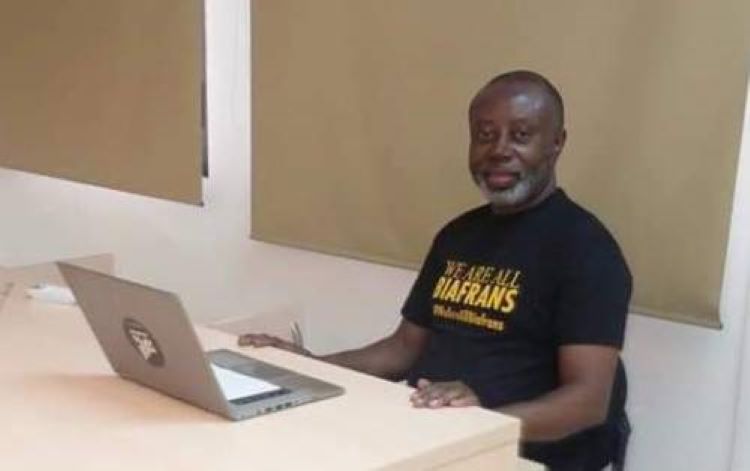There is need for Youths and Students in tertiary institutions to be equipped with the ability to critically assess the quality of news and information they are receiving and where necessary create their own messages.
This was disclosed by Coordinator, African Centre for Media and Information Literacy (AFRICMIL), Dr. Chido Onumah, at the AFRICMIL/Rosa Luxemburg Foundation Webinar on Building MIL Capacity for youths and Students in tertiary institutions to Promote Peace, Intercultural Dialogue, and Democratic Decision-Making.
“For youths who make up a vital segment of the country’s population, the news media and the internet provide a window to the rest of the world. They provide tremendous opportunities, but also carry some risks. MIL helps youths take advantage of the opportunities, while safely avoiding the risks. While people get more access to information today than ever before, there is need for them to be equipped with the ability to critically assess the quality of news and information they are receiving and where necessary create their own messages, Dr. Chido Onumah said.
He further reiterated that this intervention is targeted at youths and students who are catalyst of change and considered an important social category that can help drive any progressive ideas and objectives forward. The future of democracy in Nigeria lies greatly on the shoulder of youths whose energy, knowledge and approach to governance will help in promoting social and peaceful co-existence in the country.
“Daily, fake news and messages with divisive undertones are posted on social media for consumption by unsuspecting users. This in turn usually brings about one-sided discourse, pitting groups of youths against one another and giving rise to hate speech which threatens peaceful coexistence. It is impossible these days to get an average youth to see issues as they are without attaching religious or ethnic sentiments to them. The lack of cohesion among the youths has further allowed selfish leaders to keep looting the public treasury at will while denying the populace the opportunity of a better life.

Dr Onumah also said that it important to empower citizens, particularly youths, with the ability to see through the antics of the peddlers of fake news and hate speech. Developing the capacity of youths to deploy the benefits of MIL skills to counter false information and promote positive information will go a long way in promoting social inclusion and national cohesion.
In her Goodwill Message from Rosa Luxemburg West Africa, Angela Odah, Programme Manager, Rosa Luxemburg West Africa who spoke on behalf of the Regional Director of the Rosa Luxemburg Foundation West Africa, Dr. Claus Dieter Konig, she said that Nigerian youths have been on the fringes of the 21 years of continuous civil rule in Nigeria. They have lived through harsh policies and under funding of the educational system, which has given rise to a series of strikes by the Academic Staff Union of Universities (ASUU), and the attendant disruption of the academic calendar in our universities.
“The topic of today’s webinar: Social Media as a New Communication Strategy in the Promotion of Peace and Intercultural Dialogue is very important in view of the challenges Nigeria faces in the area of security, economically and socially. Social Media no doubt plays a strategic role in our world turned a global village as it promotes discuss, educate and inform citizens in a way that 20 years ago was inconceivable. To what extent can we use this new social media tool to hold our various governments and its agencies to be more accountable to the will of the people, Angela Odah said.
The two-day round table featured four speakers and a panel of young people. Chibuike Mgbeahuruike spoke on “Social Media as a New Communication Strategy in the Promotion of Peace & Intercultural Dialogue,” and Sarah Lwahas (PhD) of University of Jos, Department of Mass Communication spoke on “Media & Information Literacy & Freedom of Information: Essential Tools in the Promotion of Dialogue and Participatory Democracy.”
Other resources person that spoke during the webinar include; Dr Sarah Lwahas, Deputy Dean, Faculty of Arts, University of Jos; Zubairu Jide Atta: Male Engagement Specialist on the EU-funded Unwomen Spotlight Initiative on SGBV and the HeForShe; Ifedolapo Ademosu: Assistant Lecturer, Caleb University, Imota, Lagos and Comrade Chibuike Mgbeahuruike: Development Practitioner and International Relations Consultant.
The Panelist includes: David Osaghae: Acting Secretary, MILCON National Steering Committee; Zainab Yunusa: UNESCO Youth Forum Nigeria – Ambassador for Inclusion; Daniel Nwaeze: Global Coordinator, UNESCO MIL Alliance Youth Committee and Ijeoma Okereke: Program Executive, Premium Times Centre for Investigative Journalism (PTCIJ)
This webinar was part of AFRICMIL’s Political Education Project which is supported by the Rosa Luxemburg Foundation with the aim of training, empowering and galvanising youths and students in tertiary institutions across the country; to help them understand that because they are linked to the larger society by family, marriage, friendship, religion, ethics, culture and history, they cannot pretend to be indifferent to the fate of the larger society.

